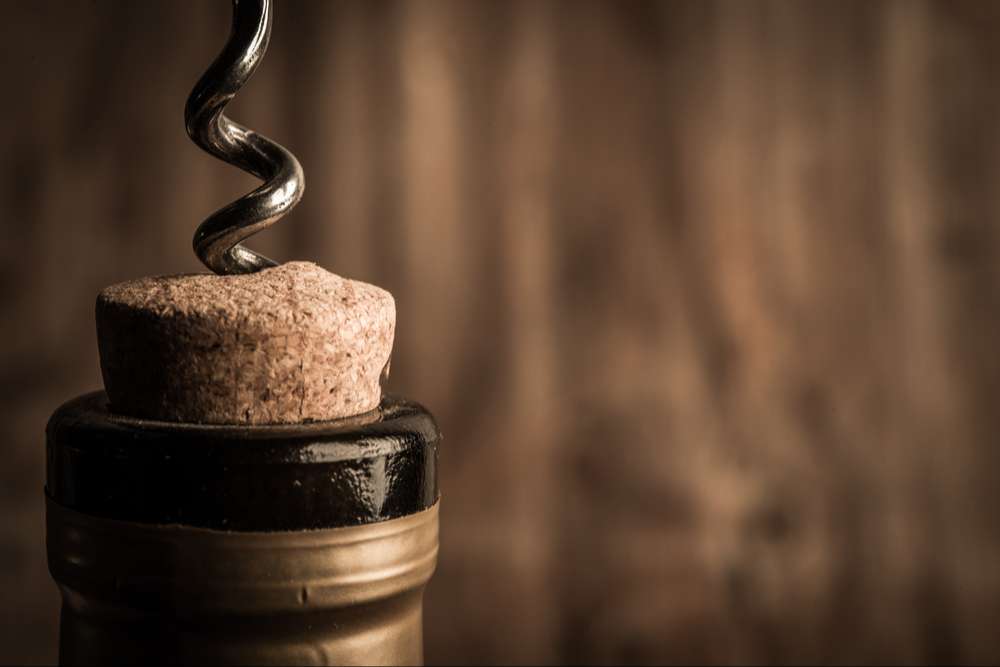Opening a beautiful bottle and discovering it's corked is a disappointment for any wine lover. Understanding what a corked wine is, knowing how to recognize it and reacting correctly can save a tasting.
What is a corked wine?
A corked wine has its aromas and flavors altered by a chemical contaminant called TCA (trichloroanisole). TCA develops when cork comes into contact with certain chemicals or molds.
The main causes
- Contaminated corks: The main source of TCA comes from defective corks.
- Storage problems: Poor bottle storage favors the appearance of this defect.
- Production environment: Contaminated drums or premises can also contribute to the development of TCA.
Impact on wine
TCA does not make wine harmful to health, but it does alter its organoleptic qualities.
How do you recognize a corky wine?
Identifying a corked wine requires a little practice and attention to detail.
1. The smell
The smell of cork is the most obvious sign. It's reminiscent of damp cardboard, mold or an old basement.
2. The taste
A corked wine has an unpleasant, flat, bitter taste. The wine's usual aromas are masked.
3. The color
Although less common, a corked wine can also show visual signs, such as a dull or abnormal hue.
Steps to confirm that a wine is corked
1. Aerate the wine after uncorking
After uncorking the wine, let it air for a few minutes. If the corky smell persists, there's a good chance the wine has been tampered with.
2. Do a cross-test
Compare your wine with an identical bottle. If one is normal and the other is corked, the problem is probably the cork.
3. Ask for advice
Have another person taste the wine to confirm your diagnosis.
What to do if your wine is corked?

Discovering a corked wine is never pleasant, but there are several options open to you.
1. Turn the bottle upside down
If you bought the wine recently, return it to the seller. Most wine merchants accept returns of corked bottles.
2. Use a filter
Special filters can reduce the effect of TCA, but do not completely eliminate the problem.
3. Recycling wine
Use a corked wine to cook sauces or marinades. Cooking often attenuates defects.
4. Prevent the problem in the future
Invest in good bottle storage and choose wines with synthetic or screw caps, which are less prone to TCA.
How to prevent corky wine?
While it's impossible to completely eliminate the risk of corked wine, there are some precautions you can take.
1. Store your cylinders correctly
Good bottle storage reduces the risk of spoilage. Maintain a stable temperature (12-14°C) and humidity around 70%.
2. Check plugs
Inspect the plugs at the time of purchase or unplugging. Traces of mold or discoloration may indicate a problem.
3. Buy from reliable sources
Specialist wine merchants and renowned estates often have rigorous quality controls to prevent faulty corks.
Uncorking wine: a crucial step

Uncorking wine may seem simple, but it influences the quality of the tasting experience.
1. Use a suitable corkscrew
Choose a corkscrew that extracts the cork without damaging it. Lever or worm models are ideal.
2. Inspect plug
After unclogging, examine the plug. A cork in good condition should be soft, with no abnormal odors or cracks.
3. Aerate the wine
Aeration after uncorking eliminates any unpleasant aromas caused by too young or poorly stored wine.
Alternatives to cork stoppers
1. Synthetic plugs
These closures, made from plastic materials, eliminate the risk of TCA.
2. Screw caps
Wines with screwcaps offer effective conservation and avoid corking altogether.
3. Recent innovations
Some producers are exploring alternatives such as glass stoppers, which combine aesthetic appeal with practicality.
The importance of bottle conservation
Good storage extends the life of your wines and reduces the risk of problems.
1. Temperature and humidity
Maintain a constant temperature and humidity level to avoid cork deterioration.
2. Bottle position
Keep your bottles lying down to keep the corks moist and prevent them from drying out.
3. Avoid vibrations
Vibration disrupts the aging of wine and can affect its long-term quality.
Conclusion
Knowing how to recognize a corked wine and react effectively is essential for any wine lover. With good bottle storage and special care when uncorking wine, you reduce the risk of encountering this problem. In case of doubt, don't hesitate to exchange the bottle or find creative solutions for using it differently.
If you enjoyed this article, please read the following article "The best organic wines to add to your collection", which might also interest you!





